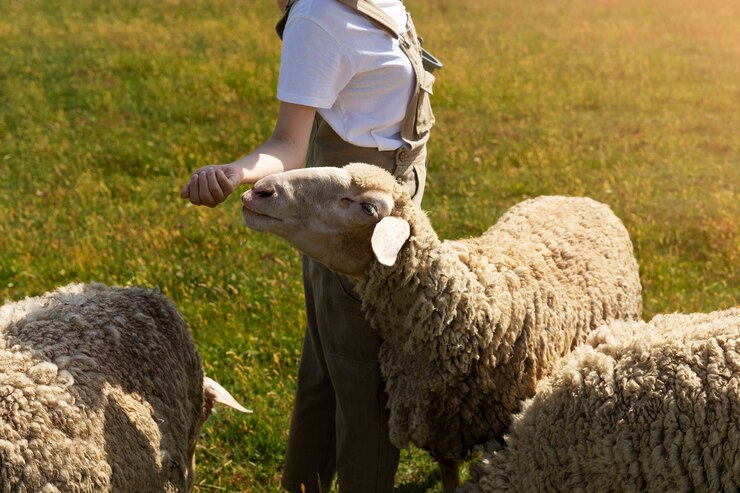Sustainable sheep farming is an approach to raising sheep that aims to balance profitability with environmental stewardship. It involves implementing practices that minimize negative impacts on the environment while maintaining or increasing farm productivity and profitability. Here are some key aspects of sustainable sheep farming:
- Grazing Management: Sustainable sheep farming emphasizes proper grazing management to promote healthy pastures and minimize overgrazing. Rotational grazing, where sheep are moved between different grazing areas, allows pastures to rest and recover, preventing soil degradation and promoting biodiversity.
- Soil Conservation: Implementing soil conservation practices is crucial for sustainable sheep farming. Techniques such as contour plowing, terracing, and cover cropping can help prevent soil erosion, improve soil health, and enhance water infiltration. This promotes sustainable pasture growth and reduces sediment runoff into water bodies.
- Biodiversity Preservation: Sustainable sheep farming recognizes the importance of maintaining and enhancing biodiversity on the farm. Providing diverse forage options, preserving native vegetation, and creating wildlife habitats can promote a healthy ecosystem and improve the resilience of the farm.
- Water Management: Efficient water management is essential for sustainable sheep farming. Implementing measures such as water recycling, installing troughs to minimize water wastage, and preserving riparian areas can help conserve water resources and protect water quality.
- Integrated Pest Management: Instead of relying solely on chemical pesticides, sustainable sheep farming promotes integrated pest management strategies. This includes using biological control agents, such as predator insects, and employing cultural practices to reduce pest populations naturally.
- Animal Welfare: Sustainable sheep farming prioritizes the well-being of the sheep. Providing proper nutrition, comfortable housing, access to clean water, and ensuring good health through veterinary care are essential for maintaining animal welfare standards.
- Energy Efficiency: Reducing energy consumption and adopting renewable energy sources can contribute to the sustainability of sheep farming. Implementing energy-efficient practices in farm operations, using solar power for water pumping and electrification, and exploring opportunities for biogas generation can help minimize the farm’s environmental footprint.
- Collaboration and Knowledge Sharing: Sustainable sheep farming benefits from collaboration among farmers, researchers, and industry stakeholders. Sharing best practices, participating in research initiatives, and staying updated on advancements in sustainable farming techniques can lead to continuous improvement and innovation.
By implementing these principles and practices, sustainable sheep farming aims to optimize productivity while minimizing negative impacts on the environment. It recognizes the importance of long-term viability by ensuring profitability and environmental stewardship go hand in hand, promoting a more sustainable and resilient farming system.
Join 'Farmers Mag' WhatsApp Channel
Get the latest Farming news and tips delivered straight to your WhatsApp
CLICK HERE TO JOIN






